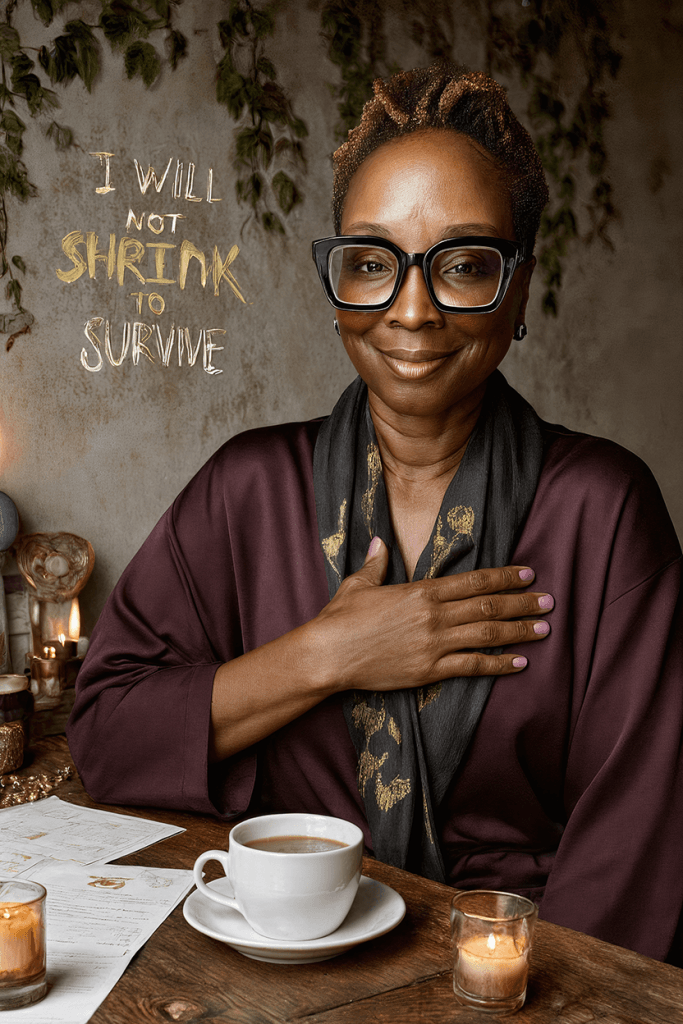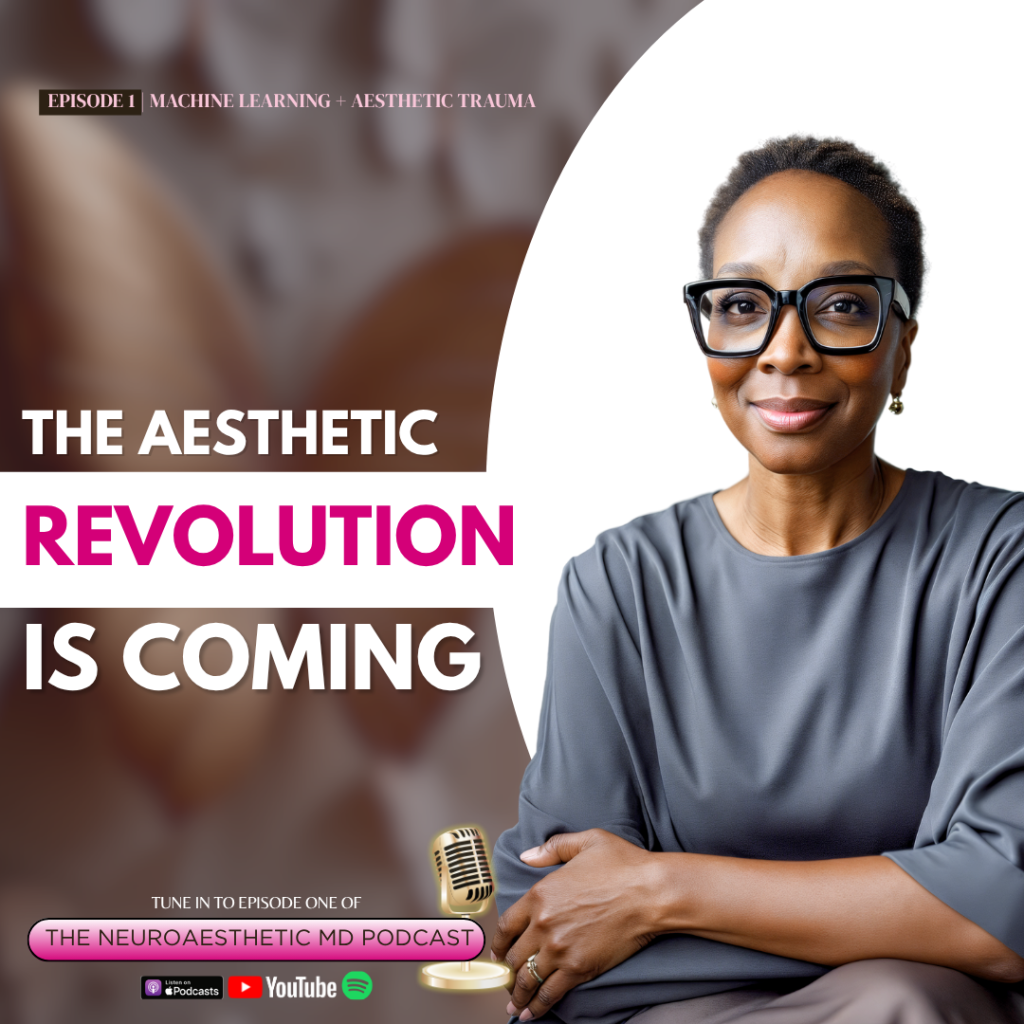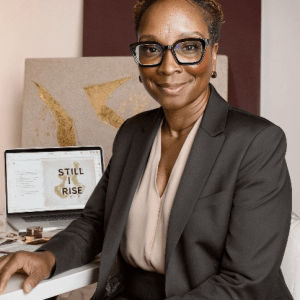Some stories don’t wait for a publishing date. They write themselves in real-time, breath by breath, especially when they cut deep like a knife.
This Juneteenth, I didn’t post right away. Not because I forgot. But because my nervous system was still catching up to something that had cracked wide open. Like a silent alarm screaming at my amygdala and vagus nerve, the very relays that store my trauma’s imprint long after the moment has passed.
The Dismissal We Don’t See Until It Hurts
I remembered being jumped as a little girl. Not because I said something cruel or crossed a line, but simply for being “too much.” Too smart. Too curious. Too vocal. The girl who beat me didn’t know me. But she didn’t like me.
So when she kicked my butt, I didn’t cry. I dissociated. Because I had already learned how to survive in silence. And as a physician, I now understand how that moment etched itself into my nervous system. How the amygdala, the brain’s alarm center, and the vagus nerve, the body’s safety regulator, recorded that pain in my sensory memory. Science now confirms what I felt: the body keeps score, even when the mind tries to move on (van der Kolk, 2014; van der Kolk, 2000).
Fast forward decades later. I share a heartfelt reflection online as a personal comment about feminism, wellness, and power.
Another woman responds.
Not with curiosity. Not with compassion. But with a tone I recognized.
Dismissive. Domineering. Performatively polite.
And suddenly, that old memory returned. My chest tightened. My stomach sank. My brain told me it was just Instagram. But my nervous system knew better. It told a deeper truth like a flashback to a time I thought I had forgotten.
Because the body doesn’t separate URL from IRL.
Why This Matters: Microaggressions Are Not Small
What happened to me wasn’t just a disagreement. It was a classic, textbook microaggression and a subtle attempt to silence, to delegitimize, to erase. And like so many women of color in professional spaces, I’ve lived long enough to know this is how the dismissal starts:
With a tone. A “friendly” correction. A philosophical rebuttal to a lived truth.
It’s not about being sensitive. It’s about being silenced for sport.
The Emotional Labor of Being “The Only One”
As a Black woman in medicine who also navigates lifestyle coaching, neuroaesthetics, and trauma healing, I am no stranger to occupying liminal space. I’ve had to explain my work in ways others don’t, to assert my authority when it should be obvious, to hold my ground when the room grows quiet.
When people feel threatened by your clarity, they gaslight your tone. When they can’t match your energy, they critique your method. When they can’t dismiss your credentials, they come for your character.
And let’s be honest: it’s exhausting.

The Bigger Story: Juneteenth and the Chains We Still Carry
That’s why I didn’t post at first. Juneteenth isn’t just about physical freedom. It’s about the psychological chains that still show up in digital spaces. Even in 2025, Black women can’t speak our truth without someone policing our delivery.
The comment wasn’t just rude. It was revelatory.
It reminded me that the digital space is still a public square with old dynamics: power, supremacy, erasure. Research shows that digital spaces often mirror real-world hierarchies, making microaggressions and silencing all too common, especially for women of color (Hurtado et al., 2015).
And yet, instead of clapping back with fury, I chose to write this. To slow down. To name the harm. To transmute it into clarity.
Because reclamation is the new resistance.
The Teachings in the Trigger
I created the Neuroaesthetic Reset Program (NRP) not just to be clever, but to be a sanctuary. A space where Black women, especially neurodivergent ones, can reset the patterns that trauma encoded. Science confirms what our bodies already know: microaggressions—those subtle, everyday slights—are not small. They trigger the brain’s alarm system (the amygdala), elevate cortisol, and, over time, can lead to chronic stress and emotional exhaustion (Sue et al., 2007; Lewis et al., 2013).
We are not overreacting. We are overstimulated by a world that still doesn’t know how to hold our multitudes. But we hold each other.
What This Moment Taught Me
- Silence is not always wisdom. Sometimes it’s survival.
- Dismissal wears a smile. But the body knows.
- Cyberbullying isn’t just trolling. It’s an attempt to revoke your visibility.
- Microaggressions are macro in their emotional cost.
- And finally: I don’t owe anyone palatability. But I owe myself presence.
So I leave you with this:
To every woman who’s ever shrunk herself to survive,
To every professional who’s been told they’re “too much,”
To every voice that got quieter because the room couldn’t hold it—
You are not alone.
We don’t just survive. We rewire the world.










